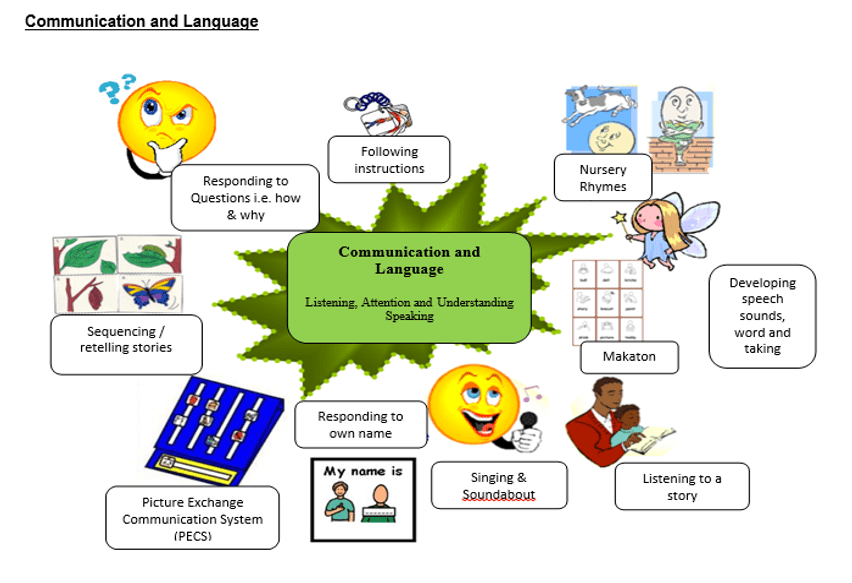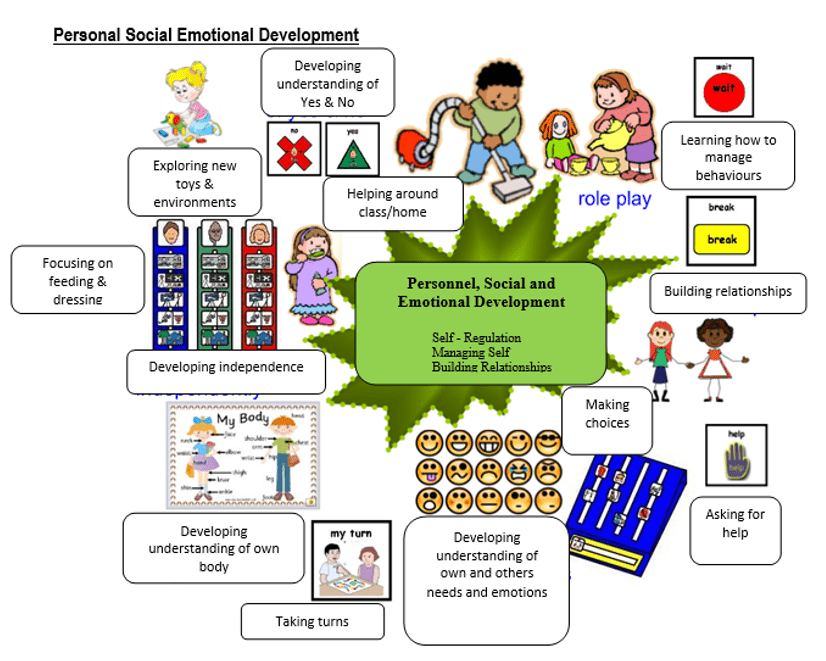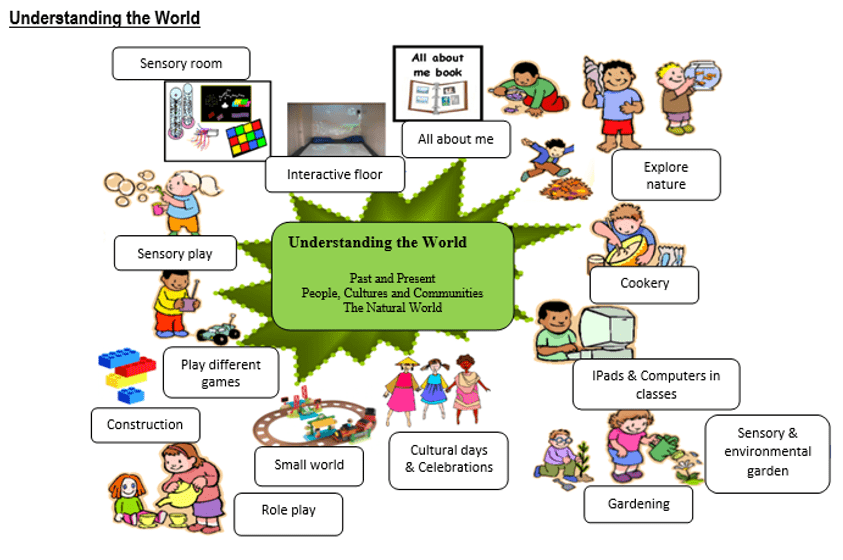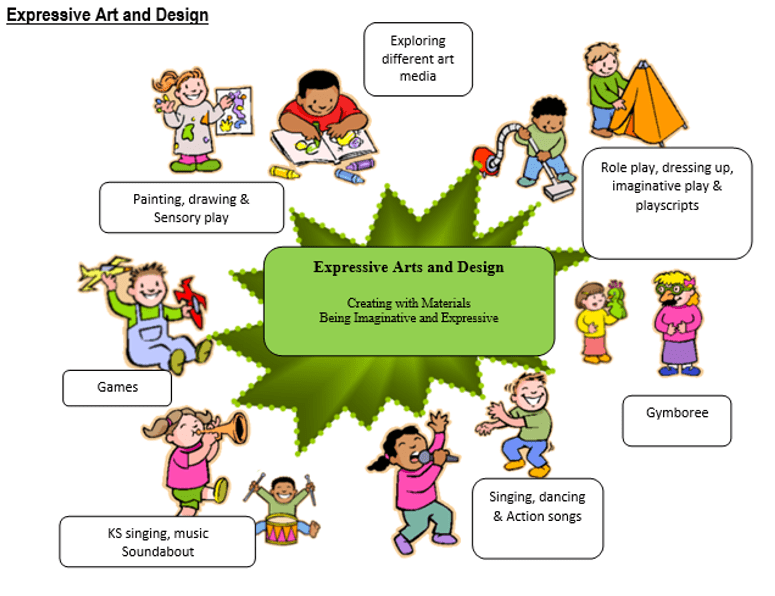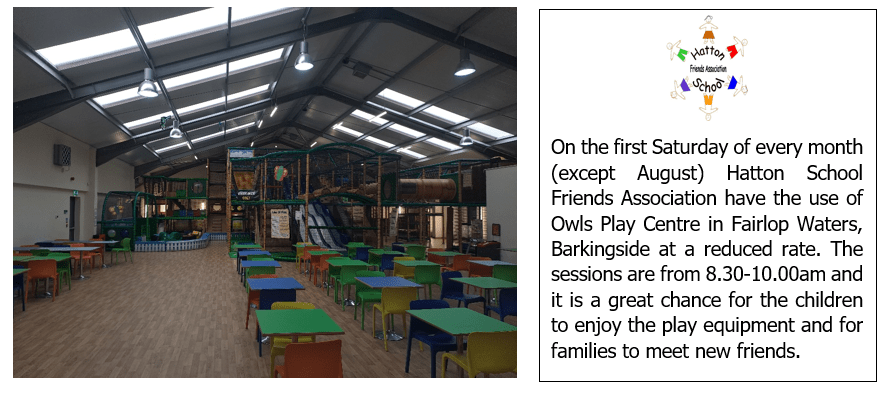EYFS Curriculum
- Aims
- The Curriculum Model
- Areas of Learning
- The Engagement Model & Philosophy
- Measuring Progress and Assessment
- Reading at Hatton
- Supporting learning at home
- Engaging with families
Please click on the links above to go to each section or scroll down
Our Early Year’s policy describes the framework upon which the beliefs and practice of this school are based.
Every child deserves the best possible start in life, in the Foundation Stage we aim to give this by building on what the children know and can do and supporting them to fulfil their potential. We have a high focus on developing the children’s communication and language, as this enables children to develop their self-confidence and gives them the ability to express themselves. Children become independent learners through the provision of a specialist curriculum which runs alongside the Foundation Stage Framework and provides a balance of child initiated and adult led experiences, which may be based on play, first hand experiences and structured activities. We endeavour to provide a supportive and structured environment with a wide range of teaching approaches / opportunities to support the children’s learning styles. We also focus on developing the children for their future schooling and will use the principles of the Engagement Profile (Exploration, Realisation, Anticipation, Persistence and Initiation) which is relevant for all our pupils.
At Hatton School we aim to provide a broad, balanced functional curriculum which will enable each child to develop emotionally, socially, physically, creatively and intellectually to their full potential and at their own pace. Each child is unique and is valued as an individual.
- To provide a high quality curriculum in line with the Early Years Foundation Stage framework and guidance.
- To provide a happy, caring, safe and secure environment for learning.
- To provide learning and development opportunities for all children, which meet the individual needs and interests of each child.
- To develop warm and secure relationships between children and adults.
- To develop children’s self-esteem confidence and independence.
- For the children to become aware of moral and social values.
- To encourage active learning through first hand experiences in both indoor and outdoor play, and through both verbal and non-verbal communication.
- To value the cultural diversity within our school and community.
- To foster positive home school partnerships and share a common sense of purpose with parents.
We are proud to deliver our curriculum in a flexible and innovative way based on the needs, interests and learning styles of each pupil making learning personal for each child as well as encouraging them to work with others.
At Hatton all aspects of learning and school life are designed to inspire and engage pupils, through focusing on outcomes in a child’s EHCP and an exciting mix of a learning through our curriculum, developing creative and sensory opportunities as well as promoting essential life skills. The aspects of communication and engagement are key to all we do and underpin our approach to learning. Throughout the curriculum we are developing skills that are promoting the children to develop skills ready for life after Hatton at whatever level they can achieve these. Our Vision / Model focuses on long term aspirations that we want to help the children work towards.
Preparing Children for Adulthood through Our Curriculum (please click here)
Curriculum Model / Vision (please click here)
Curriculum Policy (please click here)
EYFS Policy Statement (please click here)
Children will learn skills, acquire knowledge and demonstrate their understanding through seven areas of development.
The three prime areas support the children’s physical and social development, these are:
- Communication Language
- Physical Development
- Personal, Social and Emotional Development
The four specific areas are:
- Literacy
- Mathematics
- Understanding of the World
- Expressive Arts and Design
Please see EYFS Yearly topic cycle (click here)
Areas of learning – examples of how we do this
The Engagement model has been developed as an assessment tool to support children who are not accessing learning in KS1 and beyond. We believe though that the approaches and philosophy behind this are relevant to the children in the EYFS as well.
The engagement model is formed of 5 areas of engagement:
- Exploration
- Realisation
- Anticipation
- Persistence
- Initiation
The Engagement Model will help to improve the school’s understanding of how well your child is engaging in the development of new skills, knowledge and concepts in the school’s curriculum. It will help to understand their achievements and progress in their physical, social, emotional and cognitive development. It is important that your child can show progress, regardless of any additional needs they may have. This will enable the school to better support your child.
Measuring Progress and Assessment
The adapted EYFS curriculum at Hatton School is broad and balanced and identifies and meets the variety of needs of our pupils. The curriculum, alongside specialist teaching approaches, provides consistency throughout the school, whilst recognising developmental and age-related aspects to learning. Therefore, we have adapted and created assessment systems which accurately and meaningfully allow us to support the progress of our pupils.
At Hatton School, we use assessment:
To help pupils to:
- Develop skills to recognise and take pride in their own achievements,
- Focus on areas and skills that need to be strengthened,
- Allow them to be part of developing their own learning,
- Record their achievements, celebrate their success and share these with others.
To help teachers to:
- Have a knowledge of each pupil’s particular abilities, skills and understanding,
- Plan future learning targets for individual pupils and groups.
- Plan future teaching through evaluation of materials, resources and strategies.
To help the school to:
- Provide continuity and progression within school, to home and beyond.
- Evaluate effectively whole school curriculum planning and practice,
- Meet statutory requirements.
- Provide progression data for individuals and groups.
- Contribute to effective transitions.
To help parents/carers to:
- Know how their child is doing,
- Be aware of how best to help and encourage at home,
- Participate in celebrations of achievements.
Principles of Assessment at Hatton School
Assessment lies at the heart of the process of promoting children’s learning. It provides a framework within which educational objectives may be set and children’s progress expressed and monitored. This is done, as much as possible, in partnership with the pupils and parents.
Assessment is incorporated systematically into teaching and learning strategies to diagnose any areas for improvement, to track progress and identify strengths and areas to develop. Assessment supports the school to strengthen learning across the curriculum and assists teachers to enhance their assessing skills.
Assessment provides the basis for:
- acknowledging achievement (academic and personal)
- planning for learning
- recording experience, developing knowledge and skills
- reporting for a range of purposes and to different audiences (e.g. to parents/carers, to governors and to local authority)
Assessment approaches at Hatton School
Types of Assessment
Formative Assessment is the on-going assessment carried out by teachers both formally and informally. Formative Assessment is also known as ‘assessment for learning’. The outcome of formative assessments has a direct impact on the teaching and learning approaches and strategies employed immediately following the assessment. Marking of children’s work / recording how they achieve tasks is also an important part of formative assessment and this is done through workbooks, photo evidence, video evidence, etc.
Summative Assessment occurs at defined points in the school year. Summative Assessment is also known as ‘assessment of learning’. The outcome of summative assessments assist teachers in determining progress for specific subject areas or of specific skills, check if children are progressing at expected rates and make any necessary adjustments to support learning.
At Hatton we use a range of assessments to support teaching and learning, these can be seen on Our Assessment Journey (click here)
EHCP outcomes
Across all Key Stages, we track progress towards EHCP outcomes through monitoring these on our Earwig assessment tool. These may link to specific subject areas or are stand-alone targets, each EHCP outcome is personal to that child and will be one of the areas that is focused on through the year.
Aims
Reading is a core skill for leading as full a life as possible, for all children including those with various levels of SEN. Our cohort is a broad one, including students who are pre-verbal to students who can express themselves verbally. We promote reading for all, because it is one of the key skills to support them through life and in the future help them strive towards employment, independent living and help them to read for pleasure.
At Hatton School developing communication skills is at the core of the curriculum. Communication opportunities are at the centre of all learning activities throughout the school day. Emphasis is placed on the importance of engaging, fun and meaningful interactions and experiences. Hatton School promotes a total communication approach using specific interventions personalised to each child and many of these support the foundations of reading.
Key approaches, strategies and activities to support reading, writing and communication
Please also see – Hatton School – Whole School Approach to Reading (click here)
Here at Hatton we use a wide range of approaches, strategies and approaches personalised to support communication, literacy and language and meet the individual needs of the children these include:
- Sound recognition (awareness of sound and tuning into sound.)
- Awareness of symbols within their environment, i.e. critical communication boards, base boards, ‘now and next’ boards, ‘I am working for’ cards, critical communication key-ring.
- A systematic approach of learning to communicate using a picture exchange communication system (for children who are non-verbal).
- Staff use Makaton signs to reinforce what they are saying.
- Phonological awareness and phonics
- Communication and language programmes implemented through individual, small group and whole class sessions.
- Multi-sensory teaching
- Treatment and education of autistic and related communication handicapped children (TEACCH) – (structured teaching) i.e. visually structured environment, visual daily schedules, visually structured tasks to develop pupils understanding of expectations.
- Developing vocabulary – out and about trips, visits to mainstream schools.
- Development of Gross Motor Skills – e.g. ball skills, jumping, therapy balls, paint wheels.
- Development of fine motor-skills – e.g. puzzles, peg boards, threading.
- Reading fluency, including oral reading skills, book handling skills
- Reading comprehension strategies e.g. colourful semantics, Look and See, PECs
- Experience a variety of texts, in a variety of settings e.g. Tesco, local café, road safety.
- Makaton
- Use of computers, cameras, iPod touch and iPads across all curriculum areas – applications for all subjects can be accessed inside and outside of the classroom.
Phonics at Hatton
At Hatton School our children respond well to systematic teaching, therefore our approach to teaching phonics is sequential in order to develop pupil’s fluency and confidence in reading. We plan and teach phonics according to the systematic teaching of the Little Wandles phonics programme.
Structured phonics teaching should take place every day through either 1:1 teacher time, whole class teaching or throughout the day in their environment as cross curricular activities. If children are not ready for the systematic phonics in phase 2-5 then the foundations of reading will be a daily focus. The foundations of reading are very important as they are the root to meaning, communication and engagement for those more formal reading skills. The principles and skills for this will continue to be develop even when children have moved onto the other phases.
Children are assessed regularly and when secured in the foundations of reading they will be moved on to either our Little Wandles Phonics or the See and Learn sight reading programme dependent on individual needs.
We recognise that children are expected to learn to read through the reading of phonics. However for some of our children this is not an appropriate approach. We assume all children will learn to read through access to the structured reading of phonics but when this appears not to be the case their needs are assessed to confirm whether phonics should be continued or a sight vocabulary programme would be more appropriate.
– Foundations of reading.
As a school we are always trying to develop our pupils learning opportunities both in school and at home. As a result we will –
- Send home children’s termly targets so parents can work on these at home
- Share any programmes that the children are working on
- Children have access to programmes through the website – Purple Mash, Education City & Busy Things
- families can gain ideas to support learning and get ideas for activities through the schools Virtual Learning Environment (VLE)
- Home learning will be sent home if appropriate
- Reading books will be sent home if appropriate
Click here to see the video about our VLE
Engaging with parents is one of the most important things at Hatton, we want to develop a way of working collaboratively to ensure that each individual will develop to be their best at school and at home.
As a school we –
- Deliver training to support parents in helping their children to learning and develop skills to help them with their communication, independence etc.
- Send home Newsletters, termly learning journeys etc.
- We send home termly reports stating how they have progressed in their targets
- We hold Entry meetings when new pupils start at Hatton (Within first term)
- Annual Reviews and Parents evenings
- We send home information through the home school book, via email or by phoning parents
- We have coffee mornings through the year
- The Hatton School Friends Association (HSFA) hosts different events through the year
- We ask for opinions through questionnaires and surveys
- Parents are part of the school’s governing body
As families we would like you to be as involved in the school as you can be, we would encourage you to –
- Share experiences you have at home through writing in the home school book or emailing us
- Engage in training, coffee mornings etc.
- Come along to the HSFA events to enjoy the activities and also meet new friends
- Please let us know how you feel through completing the questionnaires and surveys














